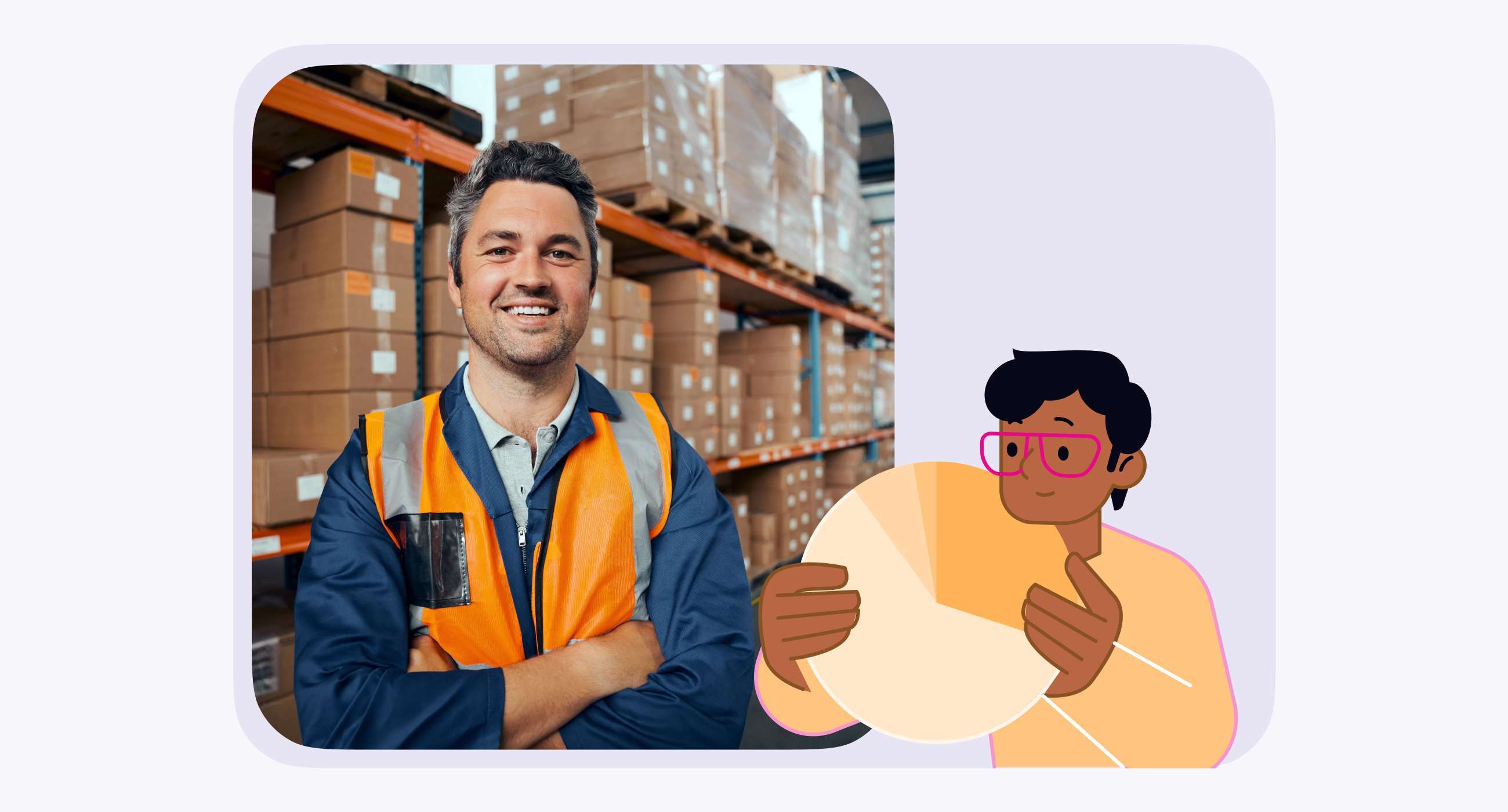If you're in charge of assembling a catering team, you're in a fortunate position.
The United States catering market soared to a staggering USD 72.26 billion in 2023, and it's projected to continue its upward trajectory, potentially hitting nearly USD 124.36 billion by 2032.
Given this promising outlook of the industry, catering remains a vital part of events, and bolstering your team is essential to keeping up with the demand.
The success of any event gathering hinges in part on the professionalism and efficiency of a good and dedicated catering staff.
In this blog, we'll explore the crucial steps and insights for recruiting catering professionals to fuel the growth of your business.
Key Takeaways
- The catering industry is experiencing significant growth, making it a promising business expansion and development sector. Keeping up with this growth requires assembling a competent catering team.
- Catering teams should be diverse, comprising various positions such as supervisors and front—and back-of-house staff.
- Different roles demand specific skills, from culinary expertise for chefs to customer service skills for servers and bartenders. Hiring staff with relevant experience is essential, especially in handling large-volume events.
- Crafting clear and concise job descriptions helps attract suitable candidates who align with your company's vision and event needs. Specificity regarding responsibilities, qualifications, and expectations is key.
- Events are unpredictable, so it's essential to have a backup plan and designated supervisors capable of resolving issues efficiently. Implementing contingency strategies ensures smooth operations even in unforeseen circumstances.
What Positions Make Up Catering Staff
While the amount of catering staff you need will fluctuate depending on the event, you must assemble a versatile team with various essential skills.
Here are the key positions that make up a catering staff.
Supervisors
Catering supervisors oversee the entire operation, ensuring that each aspect of the event runs smoothly.
They wear many hats, from interacting with clients to sorting out staff scheduling and handling any hiccups that arise.
You want someone with experience and excellent customer service skills in the position—someone who isn't fazed by sudden changes and resolves conflicts with diplomacy.
Chefs, Sous-Chefs, and Line Cooks
The culinary team is at the heart of any catering service.
Chefs lead the kitchen operations, creating menus and overseeing food preparation. Sous-chefs assist in menu planning and food production, while line cooks execute dishes according to recipes and standards.
When hiring, it's best to find staff with experience in large-volume catering so that speed and efficiency are effectively managed. Each position should have at least one highly experienced member to ensure smooth execution in the kitchen.
Servers and Bartenders
Servers play a crucial role as the representatives of the company, often taking the lead in guest interactions.
Their responsibilities include serving food and beverages, addressing guest requests, and ensuring a smooth dining experience.
Bartenders are responsible for preparing drinks and maintaining bar operations. Because these positions are highly customer-focused, soft skills like good communication and listening skills are required. Regardless of how delicious the food is, poor service is guaranteed to dampen the event, leading to potentially negative reviews.
Bussers
Bussers are integral members of the catering staff who help keep the event space clean and organized.
They clear tables, replenish supplies, and assist servers in providing top-notch service to guests. Skills required include excellent collaboration and physical ability, as the roles typically involve prolonged periods of standing and lifting heavy trays or equipment.
Dishwashers
Behind-the-scenes but equally important are dishwashers who ensure that all serving ware is clean and ready for use throughout the event.
Their role in maintaining cleanliness is vital in the catering industry. Ensure your hires are reliable and able to work in a fast-paced environment.
Now that you've identified the type of staffing you need, you can begin searching for the most suitable candidates. To guarantee that you recruit catering staff members who align well with your company, we've outlined a few steps for you to follow.
Steps to Successfully Hire Catering Staff
Now that you've identified the type of staffing you need, you can begin searching for the most suitable candidates.
To guarantee that you recruit catering staff members who align with your company, we've outlined a few steps for you to follow.
Evaluate Your Staffing Needs
Before starting the hiring process, calculate your staffing needs. Consider the type of event you're hosting, the number of guests attending, and the level of service you want to provide. Once you’ve locked the headcount, event staff scheduling is much easier when call times, roles, and confirmations live in one place.
Are you organizing a small, intimate gathering or a large corporate event? The size of the event is one of the strongest signals as to how many staff members you will need on that day. A good starting point is reviewing past events to glean insights into the required logistical needs and staffing patterns.
Know the Roles You're Hiring
Once you've assessed your event requirements, take stock of your existing team, noting their skills and availability, and identify areas where additional support is needed. It's crucial to strike a balance to stay well-staffed due to unforeseen circumstances or overburdening team members, particularly during peak periods.
Identify whether you require servers, bartenders, chefs, or kitchen assistants. This will enable you to craft a tailored job description to attract top-tier talent with the requisite skills.
Additionally, if certain team members are expected to perform tasks beyond their usual roles, such as a senior server with bartending experience assisting with bartending duties, clearly communicate these expectations to them beforehand. This helps prevent any unnecessary frustrations or misunderstandings during the event.
Be Familiar with the Event Budget
Familiarizing yourself with the event budget is important, as it directly influences the caliber and quantity of catering staff required. When faced with budget constraints, adjusting staffing plans may be necessary, potentially resulting in a smaller team than initially planned.
In such cases, prioritizing staff members with versatile expertise becomes essential. Experienced catering staff frequently excel in multitasking, efficiently handling diverse roles and responsibilities. This adaptability proves invaluable in maximizing available resources across various operational areas for events with constrained budgets.
Create Specific Job Descriptions
Craft clear and concise job descriptions that outline the responsibilities, qualifications, and expectations for each role. Be specific about the skills and experience required, and any certifications or licenses necessary.
If you're pressed for time, consider collaborating with a staffing agency to help you source and screen the talent you need. This allows you to allocate your time to other priorities. Whether you're hiring yourself or going through an agency, ensure that your expectations are communicated clearly from the outset. This will attract candidates who are well-suited to the position and aligned with your vision for a successful event.
Ask Your Network For Recommendations
Word of mouth is one of the best recruitment strategies for both employers and employees. Tap into your network and ask for recommendations when hiring catering staff. Reach out to colleagues, friends, and industry contacts to inquire about potential candidates or seek referrals.
Personal recommendations are trustworthy and reliable, making them invaluable in finding qualified candidates. Additionally, consider tapping into catering schools or culinary programs, where aspiring professionals may be eager to gain practical experience in the field.
Have a Backup Plan for Any Problem That Can Arise
Events are inherently unpredictable, necessitating a proactive approach to contingency planning. Designate a skilled supervisor capable of resolving conflicts diplomatically and efficiently.
Whether there are unexpected rushes at the bar or accidental glassware breakages, being prepared to manage and resolve such situations is paramount. Develop contingency strategies, including having extra staff available during peak hours and promptly adjusting staffing levels as needed. Implement plans to address emergencies, ensuring provisions for additional food and drinks, tableware, and any unforeseen circumstances.
Provide Staff with a Strong Onboarding Process
Securing a competent catering team is crucial, but ensuring they are thoroughly onboarded before the event day arrives is equally important. Even seasoned catering staff benefit from comprehensive briefings on company policies, procedures, and performance expectations.
During onboarding, prioritize discussions on teamwork, effective communication, and exceptional customer service. Allocate dedicated time to review these aspects with the entire team once more before the day of the event, reinforcing key points and addressing any lingering questions or concerns.
Use Catering Staff Scheduling Software to Find the Right People
Whether you are an old hat in the catering business or just starting your catering company, Workstaff's catering scheduling software and mobile app simplify your daily operations, saving both time and money. Bid farewell to manual scheduling, invoicing headaches, and late timesheets. Instead, embrace flexible, tailor-made scheduling, precise time tracking, employee-generated invoices, and a host of other benefits. With user-friendly tools, swiftly create personalized schedules, post job opportunities, hire catering staff, monitor hours, and maintain seamless communication with your team.
FAQ
How do I determine the number of catering staff needed for an event?
Evaluate the type of event, size, and service level required. Past event data can guide your staffing needs based on logistical requirements.
What strategies can I employ to recruit catering staff within budget constraints?
Prioritize versatile staff and consider collaborating with staffing agencies for cost-effective hiring solutions.
What are the benefits of using catering staff scheduling software?
Catering scheduling software streamlines operations simplifies scheduling, and improves communication, saving time and money.
What steps can I take to streamline the onboarding process for new catering staff members?
Provide thorough training on company policies, procedures, and performance expectations, ensuring all staff are well-prepared for events.










